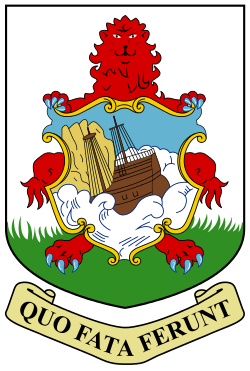History
The anthem was written and composed by Bette Johns for a competition organised by the government of Bermuda in 1984. [1] A jury selected her entry as the winner, and it was first performed on Bermuda Day, on 24 May 1984. [2]
However, by 1985, the anthem had lost significant attention, with The Bermudian citing difficulties in arranging the song for school choirs, regimental bands and orchestras and a lack of interest in doing so. In response, Senator Gerald Simons and his Community Services staff launched an initiative not to let the song die out, offering a limited budget to anyone skilled enough who would be prepared to arrange the song in time for the 1985 Heritage Month. Professional arranger Paul Christianson, from Washington, United States, but with contacts in Bermuda, responded to the appeal, offering to arrange the song for free, as long as the professionals involved were remunerated. The anthem was then orchestrated for various musical acts by Christianson. [2]
Despite being adopted as the island's anthem, the official anthem remains "God Save the King". [5] "Hail to Bermuda" is usually used when Bermuda requires a unique anthem to be played. [6]
This page is based on this
Wikipedia article Text is available under the
CC BY-SA 4.0 license; additional terms may apply.
Images, videos and audio are available under their respective licenses.
